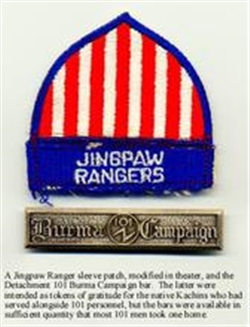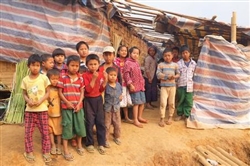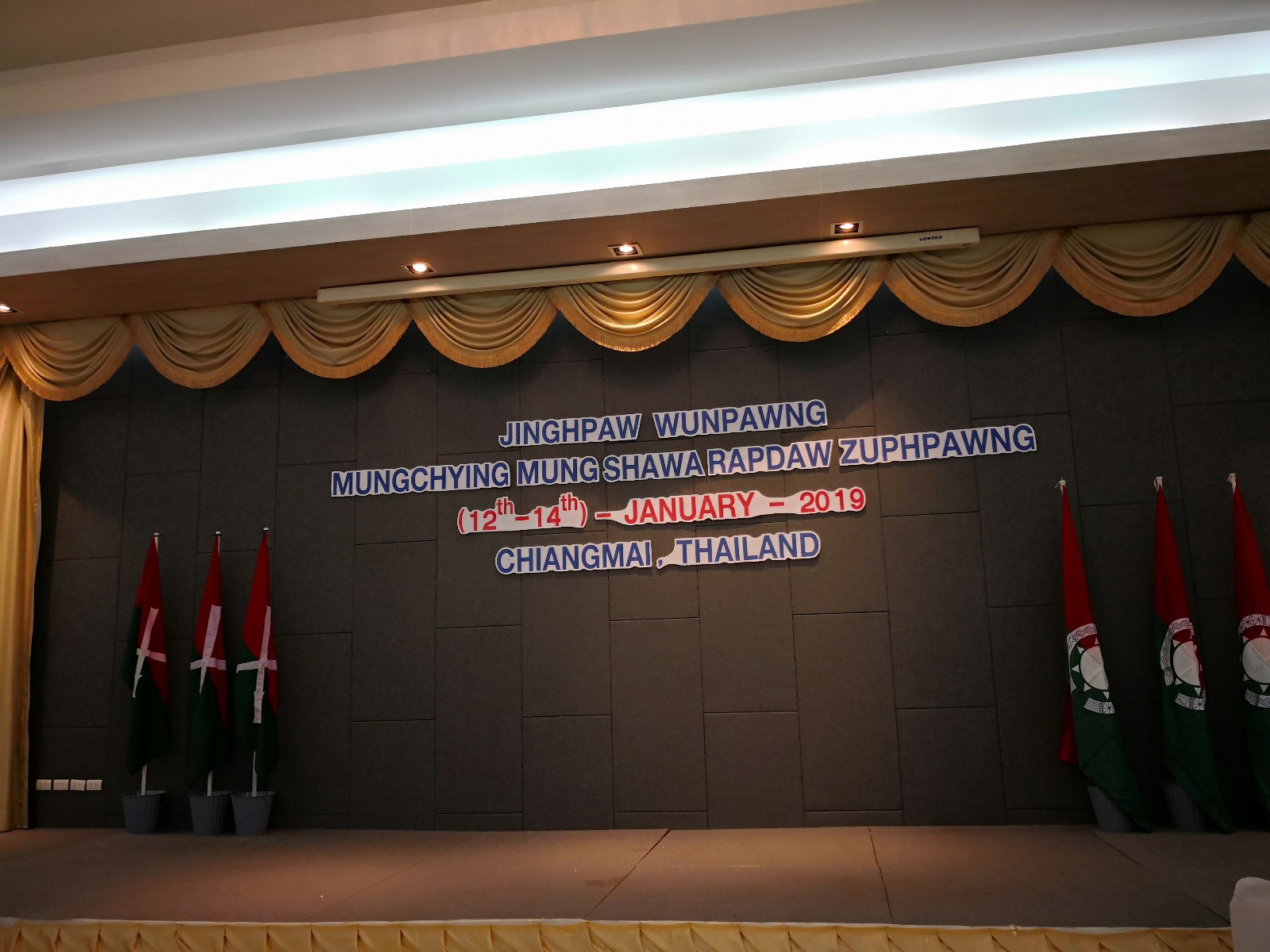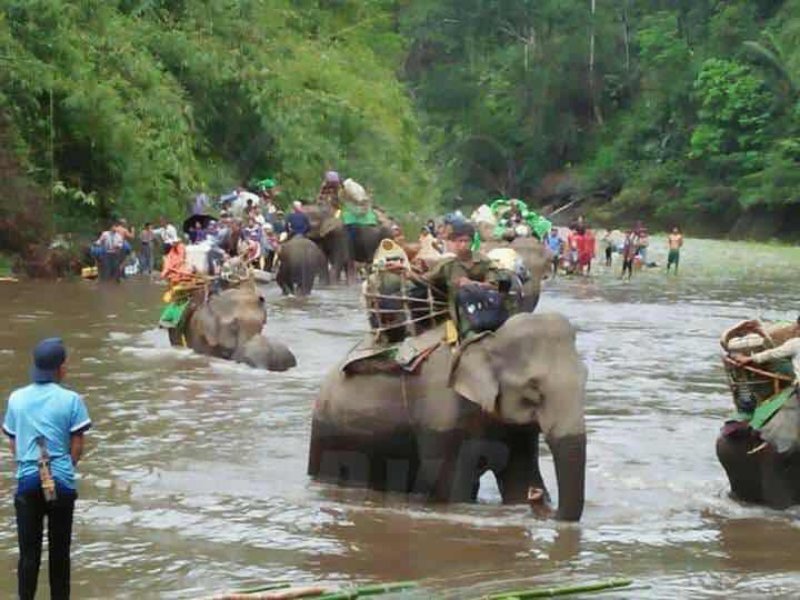The fabled lords of Kachin
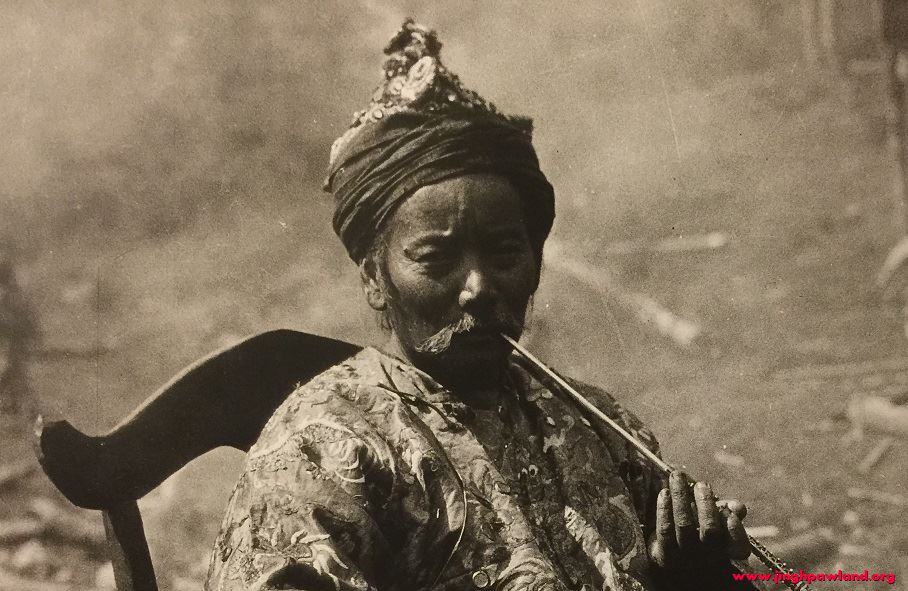 The fabled lords of Kachin
The fabled lords of Kachin
The Kachin Duwas, or chiefs, chronicled here are those from the past two centuries, notable for their military prowess, fabulous riches in jade, their wit or visionary leadership. The stories are culled from oral traditions, personal anecdotes, and whatever written records are available, given the lack of a Kachin script until the late 19th Century.
The Daihpa Duwa of Hukawng
Written historical records in Burmese confirm that the Daihpa Duwa and 1,000 of his followers fought alongside the great Burmese general Maha Bandoola in the Burmese-Assam War of 1821-1822, during the reign of King Bagyidaw (1819-1837).
Although the crucial role played by the Hukawng Kachins in winning the Assam War is left out in Burmese chronicles, Kachin oral historians relate that it was mainly due to the daring of the Daihpa Duwa and his warriors, their knowledge of the difficult terrain in the march to Assam, that Maha Bandoola was able to put down the rebellion of Assam King Chandrakanta Singha.
One oral tradition has it that a couple of the Daihpa Duwa’s followers managed to slip through the Assamese cordon surrounding Bandoola and his troops, head back to Hukawng and bring back reinforcements. This enabled the Burmese to break the siege and defeat the Assamese rebels. The Duwa so distinguished himself during the Assam military excursion that the king conferred upon him the titles of Thiha Thura and Letya Kyaw Htin. These awards and ceremonial swords presented by the king remain in the possession of the Daihpa Duwa’s descendants to this day.
An interesting aside to this narrative is a short news item that appeared in the Jinghpaw Shi Laika(Kachin Newspaper) of August 1940, which asserts that Maha Bandoola was in fact Kachin, belonging to the Maran Bandoo clan, with the given name of “La” signifying him as third son of the family.
According to the Maran Bandoos, many of whom are settled along the railway town of Mogaung in Kachin State, Bandoola had enlisted in the king’s army as a young man. Gradually rising to the rank of general by virtue of his bravery and integrity, he was granted a lovely Burmese maiden to take as wife by the King, and he lived out his life as a Burmese. There are no historical documents to prove this claim, and Burmese historians say otherwise, but the Jinghpaw Shi Laika states that at the time of writing,there were still quite a few clan elders with long memories, who could attest to this claim.
Duwa Ngalang La of the Triangle Area
Burma in its entirety was annexed by the British a year after King Thibaw’s army was defeated in the Third Anglo-Burmese War of 1885. However, it took the British more than 20 years after that to pacify the Kachin area. Hka Hku (up-river) Kachins from the Triangle Area, which lies between the Mali and Nmai tributaries to the Irrawadddy River, offered the stiffest resistance to the British colonial incursion.
In 1925, British Governor Sir Harcourt Butler invited 3 paramount Kachin chiefs to attend the great Durbar in Rangoon. The reason behind the invitation was obviously to bedazzle the chiefs with British pomp and grandeur, and dissuade them of any lingering notions of resistance to British rule.
Duwa Ngalang La, a powerful Hka Hku chief from the upper reaches of the Triangle Area, Duwa Htingnan Gumja from the lower Triangle Area, and Duwa Lahpai Zau Tu of Pangmu from the Bhamo region were the invited guests.
Anecdotes of the visit related by the Pangmu Duwa Lahpai Zau Tu reveal the Ngalang Duwa to be quite a colorful character. Making the most of his status as special guest of the Governor, he kept the liaising British frontier officers – who lorded it over him in the hills – at his beck and call the entire time of the visit.
He also asked for, and received the gift of a motor car. The British indulged his seemingly na?ve request, knowing full well it would be of not much use to him in the hills, where there was no access to proper roads or gas. But unbeknownst to them, the Ngalang Duwa had made arrangements with an Indian merchant at Mandalay to take possession of his car in exchange for a hefty sum, on the return trip from Rangoon. So it was that the Duwa happily pocketed the cash and went back to his fiefdom in the hills, a much richer man.
The Ginsi/Kansi Duwas, Famed Lords of Jade
The ruins of the grand Haw or palace of the Ginsi (also known as Kansi) Duwas near the town of Sengra, is a testament to the riches and power of the Ginsi jade lords during their heyday. The Hawwas built by Duwa Kansi La in 1897, and consisted of 12 large magnificent brick buildings.
After the passing of Duwa Kansi La in 1904 at the age of 66, his grandson Kansi Duwa La Seng took control of the entire jade mining area. During the time of his son Kansi Sinwa Nawng, the British Commissioner from Myitkyina sailed up the U Ru River to bestow upon the Duwa the title of Sawbwa or prince in the name of the British emperor. The Duwa and his wife Dujan Shadan Ja Tawng were also accorded the royal trappings of golden umbrellas by the Commissioner.
In 1923, 3 hunters from Lama Bum, or Lama Hill, happened to come upon a pair of black ivory tusks, which measured about 6 ? -71/2 feet in length and over an inch in diameter. They brought the tusks down from Lama Bum to the Kansi Sawbwa Sinwa Nawng’s residence at Taw Maw. The Sawbwa rewarded the hunters with Rupees 600 each for the tusks. Unable to transport the tusks by horse, porters had to carry them down to the Sawbwa’s palace at Lung Hkang town.
One astonishing feature of the tusks, according to folk lore, was that although they only had dark speckles at the time of discovery, they turned completely ebony after a time. Also, when placed about 4” apart, they would draw close together of their own accord.
In March 1953, Prime Minister U Nu, by popular demand, arranged for the black ivory tusks to be brought down to the capital Rangoon for public display. After 3 years of public viewing, the tusks were returned to the keeping of Kansi Duwa Naw Awng, who was conferred the title of Wunna Kyaw Htin by the Prime Minister.
Pangmu Duwa Rev. Lahpai Zau Tu
Duwa Lahpai Zau Tu of Pangmu, the first Kachin chieftain to be converted to Christianity, and the second Kachin to be ordained pastor in the Baptist faith, provided much needed visionary leadership at a time when Kachins were transitioning from old ways to the modern.
In his dual role as chieftain and pastor, he preached and practiced strong work ethics, and impressed upon his people the need to adopt healthier lifestyles, more diversified farming methods and soundereconomic practices. Most of all, he stressed the need to look after, and build up the buga or homeland.
His fervor for an autonomous homeland directed him to lead a delegation of 56 Kachin chiefs and elders to Rangoon in 1925, to petition the Governor for Home Rule status, or failing that, to institute better education, health, agriculture and commercial opportunities for the Kachins.
Rev. Zau Tu had a life-long passion for education, believing it to be the key to upward mobility for the Kachin people. He and his wife Nangzing Hka Jan were the first to establish a self-supporting primary school for hill Kachins, and he fought hard all his life for Kachins to have access to higher education.
His vision of a university for the Kachins did not materialize during his lifetime, but his strong advocation with British officials led to the first government funded English high school in Kachin State. Also, his agitation for the first Kachin Bible School made it possible for Kachin Christian leaders to be theologically trained in their heart language.
Kansi (Ginsi) Haw; Lasi Bawk Naw (Bawk Wa)
My Life and Ministry: Pangmu Duwa Lahpai Zau Tu (independently published, 2006)
Pangmu Shayi is a native Kachin political analyst at Kachinland News
The opinions and views expressed in this piece are the author’s and do not necessarily reflect DVB’s


jinghpawland.com
请扫描左边的黑白二维码图片,即可识别关注“景颇大地”公众号

